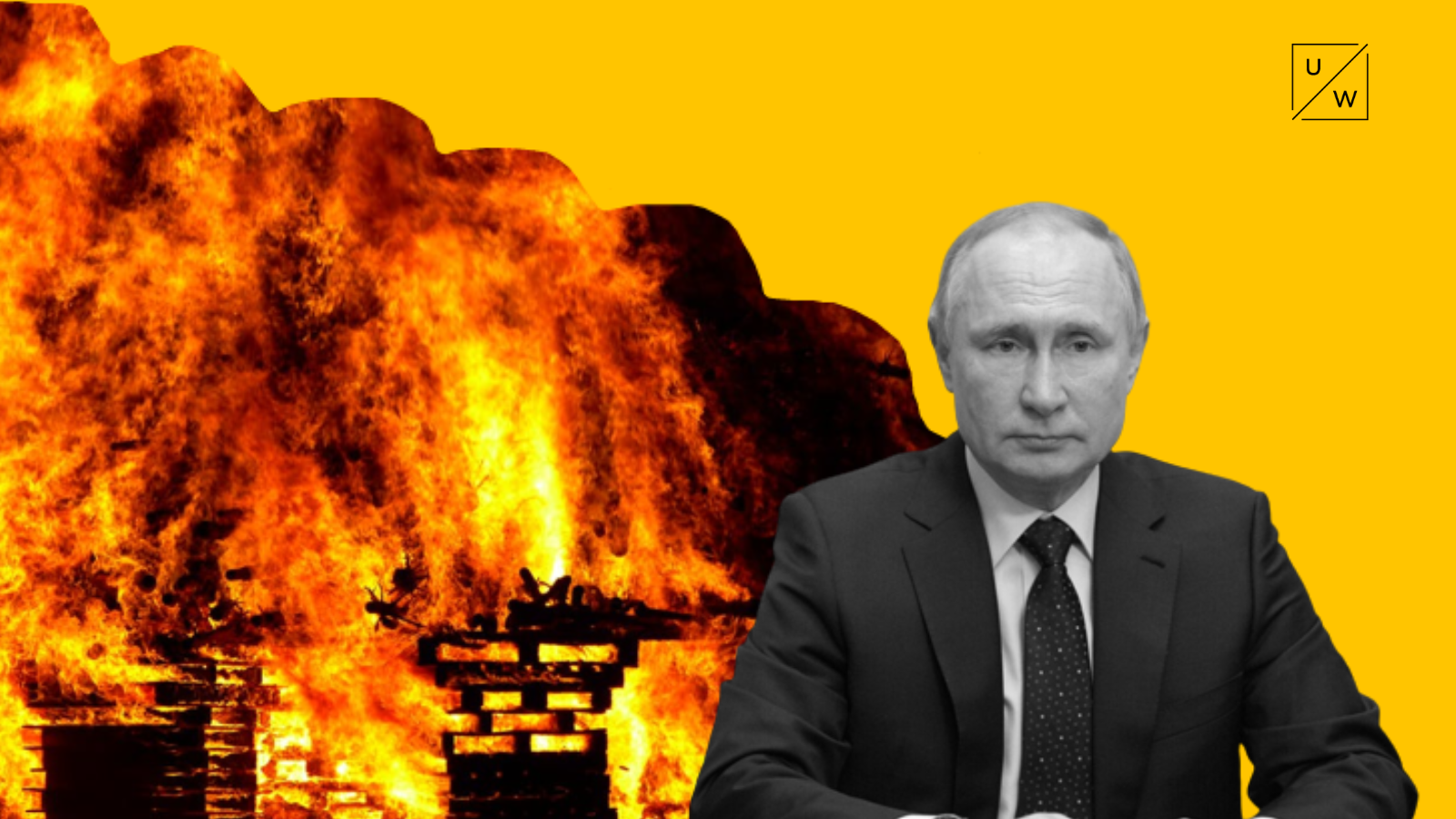What is the character of Russian war crimes in Ukraine and how to bring the perpetrators to justice.
Russian war crimes in Ukraine: what is the current status of investigations? UkraineWorld spoke to Yevhen Zakharov, Director of Kharkiv Human Rights Group.
Key points in this post, #UkraineWorldAnalysis
1. On the current status of investigation into Russian war crimes in Ukraine
- 17,000 war crime cases have been initiated by Ukrainian law enforcement agencies since the beginning of the Russian invasion on February 24, according to the Prosecutor General of Ukraine;
- The Ukrainian criminal justice system is overloaded with a large number of war crime cases. In Kharkiv Oblast, there are 300 war crimes cases per one investigator;
- Because of a large number of war crime cases, Ukrainian investigators will prioritize the most resonant war crimes, such as:
-the Russian missile attack on the Kramatorsk railway station on April 8, which resulted in 61 civilians killed and 121 wounded;
-the Russian airstrike on Mariupol drama theater on March 16, which allegedly resulted in 600 civilians killed;
-mass murders of civilians by Russian soldiers in the occupied territories. In Kyiv Oblast alone, 1,346 civilians have been murdered, according to
the current estimates;
-the Russian missile attack on the Kremenchuk shopping center on June 27, which resulted in 22 civilians killed and 64 wounded;
-the Russian airstrike on Mariupol maternity hospital on March 9, which resulted in 3 civilians killed and 17 wounded;
-other Russian war crimes which resulted in the high death toll among civilians.
- It is impossible to investigate some war crime cases, since a part of Ukrainian territory is still occupied by Russia.
2. On the character of Russian war crimes in Ukraine
- Hundreds of Ukrainian civilians have been murdered by Russians under the common pattern -- shot in the head with hands tied behind their backs. The victims were civilian men aged 18 to 60 years. This crimes have an element of a crime of genocide;
- There are over 600 cases of enforced disappearance of Ukrainian civilians, mainly in Kharkiv, Kherson, and Zaporizhzhya Oblasts. The number of cases is rapidly increasing. If it reaches 1,000, these war crimes will be qualified as crimes against humanity;
- From 1,3 to 1,7 millions Ukrainians from the occupied territories have been forcibly displaced to Russia. One third of them are Mariupol residents;
- 50,000 Ukrainian civilians in the occupied territories have been forcibly mobilized to the Russian army;
- 70% of the total number of Russian war crimes are connected to the consequences of artillery shelling, missile and bomb attacks;
- Russians have used prohibited projectiles, such as cluster munitions and phosphoric bombs;
- There are over 12,350 cases of destruction of civilian objects, mostly by artillery shelling and airstrikes;
- Other war crimes committed by Russians are torture and inhuman treatment of Ukrainian POWs and civilians, taking civilians as hostages, atacking humanitarian corridors, convoys, and missions, marodering, rape, using civilians as human shield, using insignia and uniform of Ukrainian forces, etc.
3. International cooperation for investigation of Russian war crimes
- In March, the Prosecutor General of Ukraine initiated a joint investigation team on war crimes committed in Ukraine. Prosecutor's Office of the International Criminal Court, as well as some EU countries, agreed to participate in the team;
- The work of the International Criminal Court in Ukraine is based on 2 declarations from Ukraine which allows it to investigate war crimes in Ukraine. The initial declaration related to the murder of over 100 protesters commited by the regime of pro-Russian president Viktor Yanukovych in beetween November 21, 2013 and February 22, 2014. The second declaration relates to the war crimes committed after February 23, 2014;
- Western law enforcement agencies provide significant support to Ukrainian investigators. Due to this support, some war criminals have been identified, including 4 Russian soldiers who were responsible for shooting down Malaysian passenger Boeing-777, which resulted in 298 killed;
- War crimes classification in Ukrainian criminal legislation does not comply with the Rome Statute, which contains detailed classification of war crimes and crimes against humanity. Meanwhile, the Criminal Code of Ukraine contains only one article on war crimes and does not describe crimes against humanity.
4. On the possibility of bringing Russian war criminals to justice for war crimes in Ukraine
- It is possible to bring Russian war criminals to justice due to the universal jurisdiction of war crimes and crimes against humanity: a person who committed a war crime may be detained if it visits any EU country. If a person is out of reach, it will be tried in absentia;
- It will be possible to bring top Russian war criminals, including Vladimir Putin, to justice if a new political regime in Russia extradites them to Ukraine after Ukraine wins the war.
This material was prepared with financial support from the International Renaissance Foundation.

